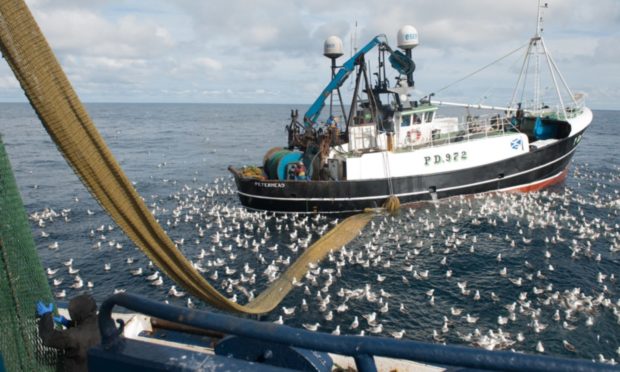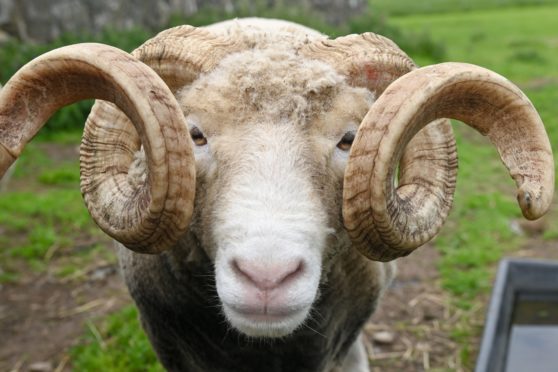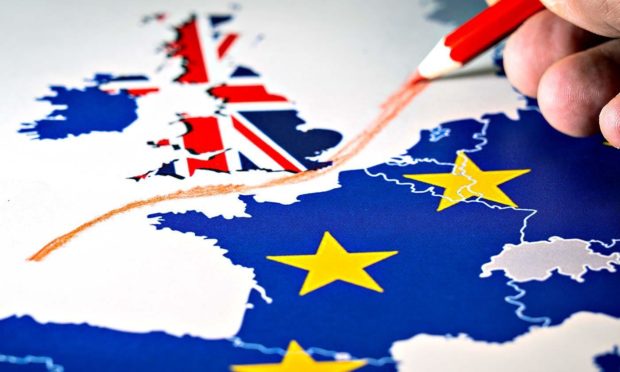Brexit smashed through Britain’s political system like a wrecking ball in June 2016, catching many in the establishment completely off guard.
Five years on and after what seemed like an endless cycle of negotiations, resignations, supreme court battles, elections and deadlock, the UK is finally out of the European Union.
Boris Johnson’s withdrawal agreement and trade deal, ratified in 2020, put an end to Britain’s 47-year-long status as an EU member state.
But it would be a mistake to think Brexit is “done”, the issues the vote to leave created – good and bad – will be points of debate for years to come.
The future of the Union, farmers and fishermen have all featured heavily in the Commons and press since Britain’s official departure on January 1, often with more questions emerging than answers.
The Union
The Brexit vote, or rather the journey from vote to deal, put a serious strain on Westminster-Bute House relations.
Whether it’s the Internal Market Act and its implications for devolution, loss of EU funding for rural Scottish communities or Holyrood being snubbed over consent for Brexit legislation, the last five years have been bruising for the Union.
So much so that Theresa May told MPs in the days following the end of the transition period that there was now a “clear and present danger” of Britain’s 300-year-old union dissolving.
The former prime minister warned Mr Johnson that his hopes of a swashbuckling, free-trading, post-Brexit “Global Britain” could be scuppered by the break-up of the UK.
Her former parliamentary aide, Andrew Bowie MP, agreed, but argued with each passing year that the “danger” would recede.
“The further we get from the event that was Britain leaving the European Union, I think the less of an issue it is going to be for voters in Scotland”, he told us.
“The SNP are desperate to keep it on the agenda but I think the more that we are removed from the event and actually start to take different decisions, it becomes a lot harder for the SNP to sell their vision to Scotland of going straight back into the EU.”
Polling guru Sir John Curtice offered a more sceptical view, telling us: “There’s a risk for those who spend their lives in SW1 to think that Brexit is over and is no longer relevant to our politics.
“But the impression that you might get from Westminster is not a faithful reflection of where we are at, so far as public opinion is concerned.
“Britain is still significantly divided over the merits of Brexit and the constitutional debate north of the border is probably going to be the next chapter.”
He added: “Whatever the prime minister’s preferences, the pursuit of Brexit has both changed the character support for independence, but has also resulted in a potentially significant increase.”
Fishing

Britain becoming an independent coastal state was a central pillar of the Brexit campaign in 2016.
A vote to leave would be a vote to “take back control” of our fishing waters, it would open “a sea of opportunity” for our fishermen and revitalise our struggling coastal communities.
In reality, fishing communities will have to wait much longer for the promised Brexit boost.
Under Johnson’s deal there is a five-year “transition” in which 25% of EU boats’ fishing rights will be transferred to the UK fishing fleet.
However, half of the 87 fish stocks listed in the deal produce no gain or less than a 1% shift of allowable catch from EU to UK fishermen.
Only 13 stocks will produce more than a 5% shift.
Indeed, the removal of the ability of EU and UK fishermen to swap quota means that landings of many species, such as cod and haddock, will actually be less than now.
The industry has been scathing not just on the detail of the deal but on Johnson’s “transparent attempt to present the meagre gains as a transformational leap forward”.
And what of the processing sector? The industry was at the sharp end of new Brexit bureaucracy that came into force in January, with scenes of backed up lorries dominating the news.
Hauliers became so incensed by the delays and faulty systems for transporting goods they drove past Downing Street in a convoy to make their anger known.
Johnson has remained steadfast, however, telling MPs earlier this year that “El Dorado” awaits.
“By 2026, the fishing people of this country will have access to all the fish in all the territorial waters of this country.
“To get them ready for that El Dorado, we’re investing £100 million in improving our boats, our fish processing industry, and getting fishing ready for the opportunities ahead.”
Farming

In recent weeks the headlines have been dominated by the UK Government’s post-Brexit trade deal with Australia and its implications for farming.
The deal will permit huge increases in meat imports before any protective tariffs come into force – raising fears thousands of farms across the UK could be put out of business.
Ministers have claimed farmers would be protected by “a cap on tariff-free imports for 15 years using tariff rate quotas and other safeguards”.
But the Australians briefed that tariffs for farming imports would stop in as little as five years for dairy products and 10 years for beef and lamb.
Alistair Carmichael MP, who previously served as the Liberal Democrat’s Brexit spokesman, said the deal was a worrying sign of things to come.
He added: “All the signs are that fishermen and farmers have been used by Boris Johnson and are paying the price for his government’s ideological obsessions.
“Fishermen were judged expendable by the Conservatives in the 1970s – now it is farming on the Tory chopping block.”
North-east MP Andrew Bowie dismissed the suggestion, telling us: “I understand the worries and concerns of farmers but the fact is that Australia cannot fulfil the demand in markets in Asia, they’re not going to be sending huge quantities of beef over the other side of the world.
“The deal will be a huge boon to Scottish exporters who will have access to those markets and be able to sell Scottish produce in Australia.”
Where next?
Jacob Rees-Mogg said it could take up to 50 years before the true economic outcome of Brexit is known.
If the last six months outside the EU are anything to go by, then expect plenty more rows and debate because fundamentally the Brexit vote and the passage of the EU trade deal was the end of the beginning, not the beginning of the end.
There will be many more trade deals to come, they will bring advantages and disadvantages depending on the industry.
There will also no doubt be many more political bun fights with Brussels, not least over the understanding of the Northern Ireland protocol.
The only thing we can say for certain is that Brexit has transformed British politics in a way not seen since the end of the Second World War.
